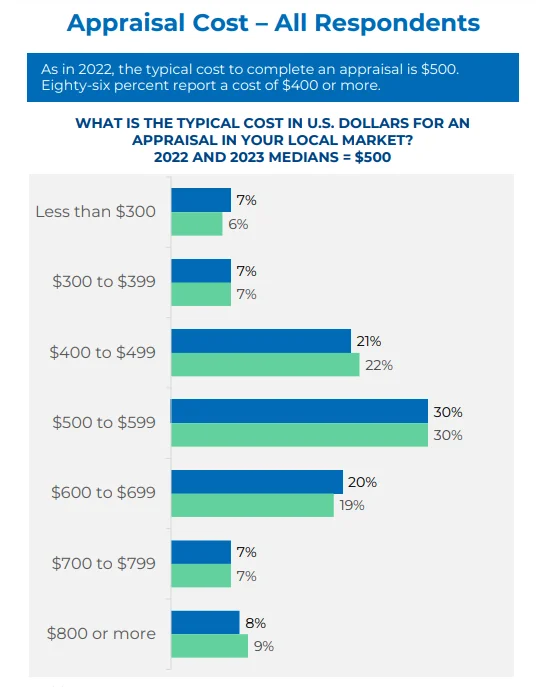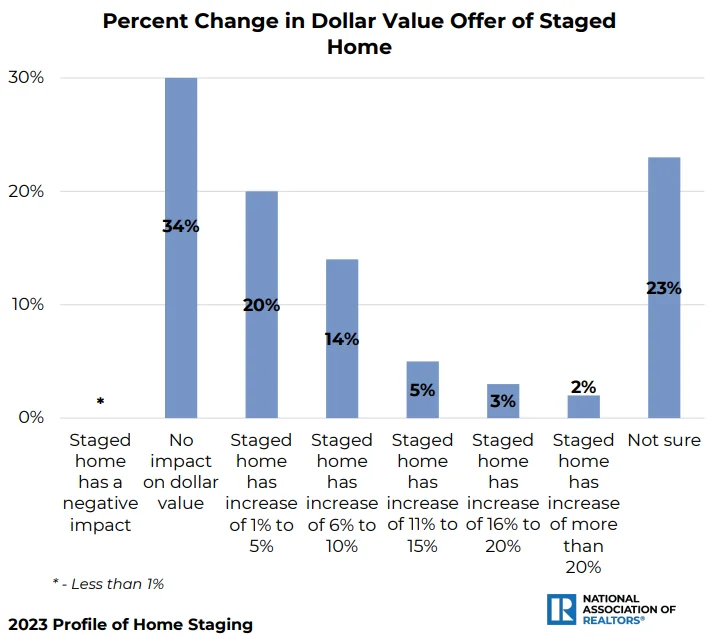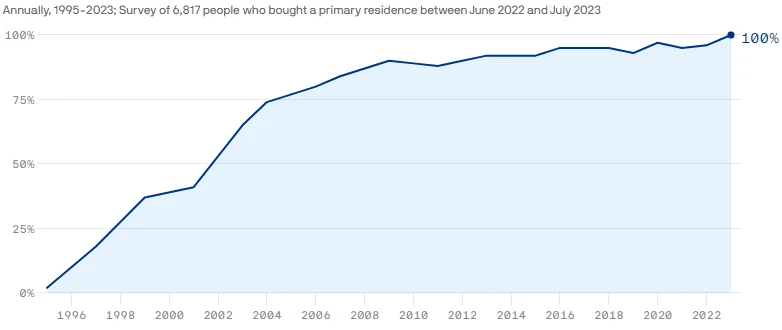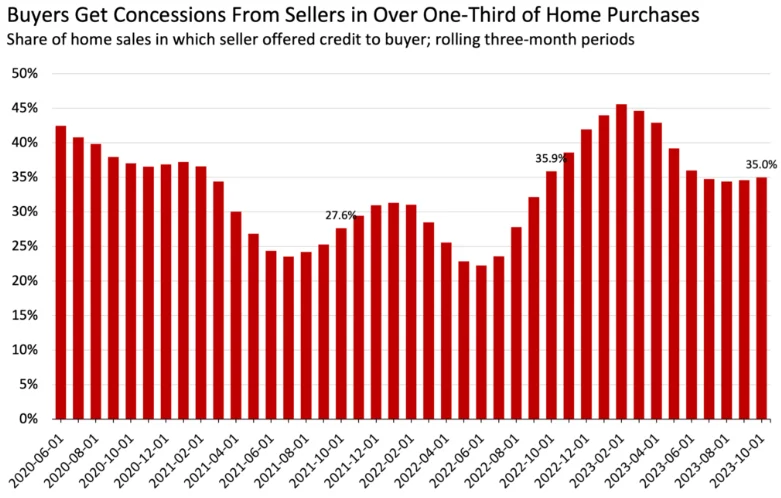What do you do when you need to sell an old house fast but don’t want to leave thousands of dollars on the table? We’re going to cover the most effective strategies and tips to sell your old house quickly and efficiently, backed by examples and statistics.
There are many things to consider in deciding whether you want to spend the money and time to get top dollar or whether it’d be better to sell it quickly at a bit of a discount and let someone else deal with all of that. Let’s dive right in and discover the secrets to a successful and speedy sale.
Know the Property’s Value Before Trying to Sell an Old House Fast
Understanding the value of your property is crucial when it comes to selling it quickly. There are several ways to determine your house’s worth:
1. Determine the Market Value of Your Older Home
The market value of your home is its estimated worth based on current market conditions, recent sales, and other factors. Online tools like Zillow or Redfin can provide an estimate of your property’s value. For instance, Zillow’s Zestimate tool has a median error rate of 2.4% for on-market home sales, 7.49% for off-market sales.
2. Compare Similar Properties
Another way to assess your home’s worth is by comparing it to similar properties in your area that have sold recently. A study by the National Association of Realtors found that 50% of FSBO (for sale by owner) sellers used comps to determine the price of their home.
When determining the market value of your house, comparing it against similar homes in your area is a crucial step. Here are detailed instructions on how to make an accurate comparison:
- Define your criteria: First, determine the criteria for selecting comparable homes. These should include the following factors:
- Property location: Choose homes in the same neighborhood as your property, or those in the same school district but within a few miles of your property.
- Age: Select homes built around the same time as your house.
- Size: Compare homes with similar floor plans, square footage, number of bedrooms, and bathrooms.
- Architectural details: Pick houses for sale with similar architectural features or designs.
- Lot size: Compare properties with a similar lot size.
- Gather data: Collect information on recently sold homes in your area that fit your criteria. You can gather this data from various sources, including:
- Real estate websites: Platforms like Zillow, Trulia, and Redfin provide information on similar property types, including their sale prices.
- Local property records: Visit your local county assessor’s office or their website to access public records of property sales.
- Real estate agent: If you’re working with a real estate agent, they can provide you with a Comparative Market Analysis (CMA) that includes relevant comparable successful sales.
- Analyze the data: Once you have collected the necessary information, it’s time to analyze and compare the data. Keep the following factors in mind:
- Sale price: Compare the sale prices of similar homes to gauge the potential price range for your property.
- Date of sale: Focus on homes sold within the last three to six months, as older data may not reflect current market conditions.
- Property condition: Choose properties that are in a similar condition to yours. You wouldn’t list a turnkey property the same as you would an as-is sale that needs some work.
- Unique features: Note any unique features or upgrades in the comparable homes, such as a swimming pool, a finished basement, or energy-efficient improvements. These features can impact the sale price.
- Adjust for differences: After analyzing the data, make adjustments for any differences between your home and the comparable properties. For example, if your home has an additional bedroom or a larger lot size, you may need to adjust the estimated value upward. Conversely, if your home is in poorer condition or has fewer features, you may need to lower the estimated value.
- Determine a price range: Based on your analysis, establish a price range for your home. This range should reflect the differences between your property and comparable homes. It’s essential to stay objective during this step and avoid overvaluing your home based on emotional attachment or personal preference.
3. Hire an Appraiser
A professional appraiser can give you a more accurate evaluation of your home’s value. According to the Appraisal Institute, they consider factors like location, condition, and any unique features your property may have.
The cost of a home appraisal varies depending on several factors, such as the size and location of your property, the complexity of the appraisal, and the appraiser’s experience. On average, a home appraisal in the United States can cost $500. However, it’s not uncommon for appraisal fees to range from $250 to $800 or more, depending on the factors mentioned above.
Keep in mind that these costs are subject to change and can differ based on regional factors, such as local demand and the cost of living. It’s always a good idea to contact a few local appraisers to get accurate quotes for your specific property before proceeding.

Credit: NAR 2023 Appraisal Survey
Getting Your Old Property Ready for a Fast Sale
Properly preparing your home can make a significant difference in attracting potential buyers and securing a quick sale.
Decluttering
A clutter-free space will make your house appear larger and more inviting. A study by UCLA found that clutter negatively affects people’s mood and self-esteem, which can impact a buyer’s perception of your home. Sometimes clutter can have such a negative impact that buyers will submit lower offers or just walk away entirely.
Cleaning
A clean home will leave a positive impression on potential buyers. Research by HomeLight suggests that a deep-cleaned house can add up to $3,731 to the property’s sale price. If you de-clutter on top of that, you could add an additional $6,523!
Minor Repairs
Address any small issues, like leaky faucets, chipped paint, or broken fixtures, before listing your property. If it can be somewhat easily fixed for a minimal cost, it’s probably worth doing if you want to get the most from selling your home. A study by Thumbtack shows well-maintained properties sell for 10% more than a home in average condition. You’d be surprised at how a fresh paint job can transform a home!
This is where owners of older homes have to decide where they are going to draw the line between potentially selling for a higher price and the time, effort, and cost of making the necessary repairs and upgrades to do so. If you’re wanting to sell the home quickly, these repairs, along with the time and cost to do them, can quickly pile up. See below for a faster alternative.
Home Staging
Staging your home with attractive furniture and decorations can help potential buyers visualize themselves living there. Considering a service that offers virtual staging with one click is a great way to reduce costs and save time getting in your house ready for prime time. The National Association of Realtors revealed that while 34% of staged homes didn’t receive offers higher than asking, 44% said prospective buyers were willing to pay more than asking.

Credit: NAR 2023 Profile of Home Staging
Note: Staging a property can cost anywhere from $774 to $2,847, with the national average sitting around $1,774.
Marketing Your House
Effective marketing is key to generating interest in your property and attracting potential buyers. Fortunately, when you work with a real estate agent, they’ll handle the marketing aspect for you.
Taking High-Quality Photos
High-quality photos can showcase your home’s best features and make it stand out online. Ruby Home, a luxury real estate firm, revealed that professional photographs can get your home sold 32% faster than a home with average photos. Enhancing these photos with an advanced image generating tool can further elevate your property’s appeal, capturing every detail in its best light.
That’s because a professional photographer knows how to capture the positive features in your home, while not drawing attention to the areas that aren’t so great, like bathroom floors that need to be replaced or some of the home’s original details that are in less-than ideal condition
What’s more interesting is that the study revealed properties with aerial photographs sold 68% faster, and listings with videos received 403% more inquiries than listings without them!
Note: Professional home photography can cost $125 for a basic package and go up to $500+ if you want aerial drone photos, 3D tours, and so on.
Writing an Engaging Description
An engaging description will pique the interest of potential buyers and entice them to learn more. Fit Small Business has compiled a list of 144 of the best words to use in a real estate listing if you want to sell quickly. Also, if you’re open to getting a cash offer, consider mentioning a cash offer price, which could draw in investors who want to buy a house with cash.
Utilizing Social Media
Social media platforms like Facebook and Instagram can help you reach a larger audience and generate interest in your property. According to NAR, 100% of surveyed buyers began their home search online in 2023.

Credit: NAR Profile of Home Buyers and Sellers 2023
Working with a Real Estate Agent
A skilled real estate agent can help you market your home effectively, attract potential buyers, and negotiate offers. In 2022, NAR discovered that FSBO homes sold for $120,000 less than properties sold through an agent. So, while you may not want to pay real estate agent commissions, they’re worth it, wouldn’t you say?
Real estate agents also have tech solutions that allow them to reach a large network of professionals and property investors who may be in the market for potential rental properties. They also have connections to different types of companies that you encounter on your road to closing. These include professionals with home inspection expertise, pest control experts, loan officers, lenders, attorneys, and much more.
Setting a Realistic Price
Pricing your home competitively from the start will attract more potential buyers and increase your chances of a quick sale. In January 2023, a property would sit on the market for an average of 36 days, but if the property is priced too high, it could sit much longer. Overpricing can deter buyers and cause your property to sit on the market for an extended period.
Offering Incentives
Offering incentives like covering closing costs or including appliances can make your home more attractive to potential buyers and expedite the selling process. Redfin conducted a survey and discovered that 35% of sellers offered incentives to draw buyers.
Some of the most common seller concessions or incentives include:
- Price reductions or discounts
- Credit toward costly renovations
- Covering closing costs or agent commission fee
- Incentives for cash buyers
- Offer to cover the cost of a home inspection report, title searches, or appraisal fees.

Credit: Redfin
Price Reductions
If your home isn’t selling as quickly as you’d like, consider lowering the price to generate more interest. An experienced agent should have your property as close to market value as possible, so the reduction shouldn’t be too devastating. Bankrate suggests an incremental drop ranging from 0.5% to 3%. However, this can vary significantly depending on your local real estate market.
Be Flexible
Being accommodating and flexible can help you sell your home more quickly.
Virtual Open Houses
Hosting open houses used to be a great way to provide potential property investors with an opportunity to view your property in person. However, as shown in a report by the National Association of Realtors, only 4% of buyers used open houses as a source of information during their home search.
But thanks to technology, virtual open houses are a game changer. You can pre-record an open house and potential buyers can check it out 24/7. If they want to see more or ask questions, they can schedule an in-person tour or a live call if they’re out of state.
Showing Availability
Make your home available for showings as often as possible, even on short notice. The more potential buyers who see your home, the higher the likelihood of receiving an offer. Keep in mind that on average it can take between 10 to 25 showings before there’s an attractive option. And if you’re on a tight selling deadline, you’re probably going to feel some pressure.
Fortunately, if you use a service like HomeGo, you can sell an old home fast and have a guaranteed certainty of cash get in as little as 7 days.
Negotiating Offers
According to the National Association of Realtors, 86% of buyers purchased their home through a real estate agent or broker, and almost all of them (89%) said they’d use the same agent again. Experienced agents can negotiate on your behalf to get as close to the listing price as possible. If you’re working with an agent with hands-on expertise regarding negotiating with cash buyers, they might be able to get you a higher selling price than expected!
So, be open to negotiating offers and consider any contingencies that buyers may have. Your real estate agent can help you navigate this part of the selling process and ensure a successful real estate transaction.

Legal Matters
Though most homes shouldn’t have to worry about any legal issues, taking care of any existing legal matters involving the property can be essential when selling your home.
Being aware of these issues and addressing them proactively can help you avoid unnecessary delays and ensure a smooth transaction. Some common legal matters that could cause delays include:
- Title issues: Problems with the property’s title, such as liens, easements, or ownership disputes, can significantly delay the sale process. Before listing your property, ensure that the title is clear and free of any encumbrances.
- Disclosure disputes: Failing to disclose known defects or issues with your property can lead to legal disputes and delays in the sale process. Be transparent about any known problems with your home to prevent potential conflicts with the buyer.
- Contract disagreements: Disagreements over contract terms or contingencies, such as financing, inspections, or repairs, can delay the sale timeline. Work closely with your real estate agent and real estate attorney to create a mutually agreeable contract that minimizes the likelihood of disputes.
- Permit issues: If you’ve completed any renovation projects or additions without the necessary permits, this can cause delays in the sale process. Ensure that any work done on your property is properly permitted and documented to avoid potential problems.
- Homeowners association (HOA) complications: If your property is part of an HOA, there may be specific rules and regulations that you must comply with before selling your home. Make sure you understand these requirements and address any potential issues before listing your property.
- Boundary disputes: Disputes over property lines or encroachments can lead to delays in the sale process. Obtain a survey of your property to confirm boundaries and address any potential issues before listing your home.
- Bankruptcy or foreclosure: If you’re going through bankruptcy or facing foreclosure, there may be legal restrictions on selling your property, which can lead to delays or complications in the sale process. Consult with an attorney to understand your options and the potential impact on your home sale.
By being proactive and addressing potential legal issues before listing your home, you can minimize the risk of delays and ensure a smoother sale process. Working with an experienced real estate agent and attorney can also provide valuable guidance and support in navigating these potential legal matters.
Normally your real estate agent, if you have one, should ask if there are any of these issues and be able to point you in the right direction if they exist.
If there are more complicated issues with the property, you may have to consult a real estate attorney. While these situations are not the norm with your average residential home sale, sometimes it can be necessary. A real estate attorney can help you navigate the complicated legal aspects of selling your home, including drafting contracts and ensuring all necessary documents are in order. Keep in mind that you aren’t required to work with real estate attorneys to sell an old home fast, they can can help protect your interests and reduce potential legal issues.
Preparing Necessary Documents
Gather and prepare all required documents, such as the property deed, disclosure statements, and inspection reports, to streamline the closing process. In June 2022 alone, approximately 60,000 real estate transactions fell through due to a wide range of complications.

Note: Your real estate agent should have the contract savviness to include some kind of legal or financial consequences if a potential buyer backs out simply because they got cold feet.
Sell Your Home As-Is
Selling your home “as-is” means putting it on the market without making any repairs or improvements. Yes, that even includes not having to put a fresh coat of paint on any walls! While this approach may not be suitable for every situation, there are several benefits to selling your home as-is:
- Reduced costs: Selling your home as-is can save you money on repairs, renovations, or updates that may be required to prepare the property for sale. This can be particularly beneficial if you have limited funds or if the necessary repairs are extensive and costly.
- Faster sale: Since you won’t need to spend time on repairs or improvements, you can list your property on the market sooner. This can potentially result in a quicker sale, especially if you’re in a hurry to move or need to sell due to financial constraints.
- Less stress: Making repairs and improvements can be time-consuming and stressful. Selling your home as-is can help you avoid the hassle and pressure associated with preparing your property for sale, allowing you to focus on other aspects of the selling process or your upcoming move.
- Attracting investors: Selling a home as-is can be appealing to real estate investors or buyers looking for a fixer-upper. These buyers are often willing to purchase a property at a lower price, with the intention of making improvements themselves and potentially profiting from the increased value.
- Simplified negotiations: By listing your home as-is, you’re setting clear expectations for potential buyers about the property’s condition. This can help to simplify negotiations since buyers will understand that they are responsible for any repairs or improvements after the purchase.
- Limited liability: When you sell your home as-is, you’re generally not responsible for any issues that arise after the sale, as long as you have disclosed any known defects. This can help protect you from potential legal disputes or financial liabilities related to the property’s condition.
Keep in mind that selling a home as-is may result in a lower sale price compared to a property that has been updated and well-maintained. It’s essential to weigh the benefits and drawbacks of selling your home as-is and consider your unique circumstances when deciding on the best approach for your property.

Conclusion
Selling an old house fast may seem challenging, but with the well-executed strategy in marketing and pricing, you can expedite the process and achieve a successful sale. Be flexible, enlist the help of real estate professionals, and stay proactive throughout the entire process to maximize your chances of a quick and profitable sale. And of course you can always skip all those steps and get a quick cash offer from HomeGo if you need to sell an old home fast.





